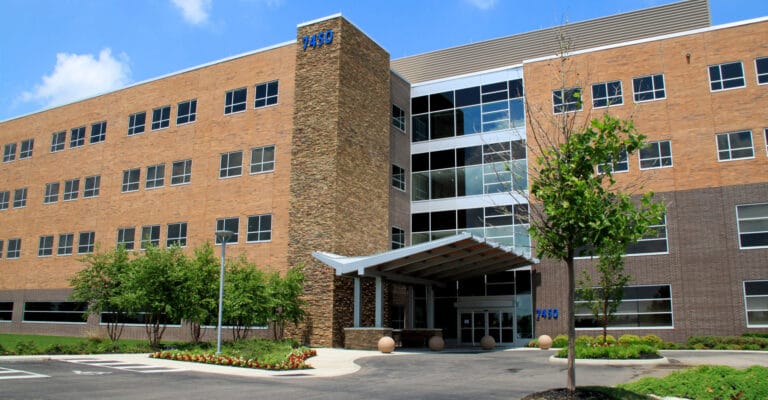
What Does a Gynecologist Do?
A gynecologist is a medical doctor who specializes in a woman’s reproductive health, focusing on conditions and treatments outside of pregnancy.
After completing their training at an accredited medical school and further graduate medical education, they are qualified to address a wide range of women’s health issues.
Gynecologists work with patients to maintain reproductive wellness throughout life, addressing concerns related to the reproductive organs.
Routine Exams for Reproductive Health
One of the primary roles of a gynecologist is performing routine exams. These include Pap smears, pelvic exams, and breast screenings, all of which are crucial for detecting potential reproductive health concerns early.
These exams help monitor the overall health of the female reproductive system and can detect conditions before they escalate into more serious health issues.
Regular check-ups with a gynecologist offer more than just peace of mind—they’re an important part of preventive care. This ongoing monitoring helps spot abnormalities that may indicate infections, growths, or even precancerous cells, allowing for timely intervention.
Managing Menstrual and Reproductive Issues
For many women, menstrual issues can significantly impact quality of life.
A gynecologist provides support by diagnosing and managing common concerns such as irregular periods, heavy bleeding, or severe pain.
Conditions like endometriosis, ovarian cysts, and fibroids are also within the realm of gynecological care.
Targeted treatments are provided based on the specific diagnosis. For instance, a patient suffering from heavy bleeding might receive hormonal treatments, while someone with severe cramps caused by endometriosis may need medication or even surgery.
By addressing menstrual and reproductive challenges early on, gynecologists improve quality of life and prevent long-term complications.
Fertility Support and Contraception Options
For those looking to start a family, a gynecologist can provide guidance on how to enhance fertility, track ovulation, and explore fertility treatments if necessary.
Gynecologists also assist with family planning for those wanting to avoid pregnancy, offering a range of contraception options.
Birth control methods are not one-size-fits-all. A gynecologist will tailor recommendations to suit the patient’s lifestyle and health history.
Options such as IUDs, hormonal pills, implants, and barrier methods are thoroughly discussed to ensure the right choice is made for each individual.
Menopause Care and Hormone Therapy
As women age, they face a variety of challenges brought on by menopause. This life stage involves significant hormonal shifts that can lead to discomfort, mood changes, hot flashes, and sleep disturbances. A gynecologist provides support by recommending treatments that alleviate these symptoms.
Hormone replacement therapy is often suggested to manage the symptoms of menopause. This treatment involves supplementing the body with the hormones that decrease during menopause.
Other non-hormonal approaches, such as lifestyle adjustments or specific medications, can also be explored based on a woman’s unique needs.
What Does an OB/GYN Do?
An OB/GYN, which stands for obstetrician-gynecologist, is a medical doctor who specializes in both obstetrics and gynecology. They offer comprehensive care that spans from pregnancy-related services to general women’s health care.
In addition to the services provided by gynecologists, OB/GYNs play an integral role in pregnancy, childbirth, and postpartum care.

Pregnancy and Childbirth Support
From the moment a woman starts planning for pregnancy, an OB/GYN becomes a key partner in her health journey.
OB/GYNs support patients through every stage of pregnancy, from preconception planning to the actual birth. They provide careful monitoring throughout pregnancy to track the baby’s growth and ensure the mother’s health is prioritized.
During prenatal visits, an OB/GYN assesses blood pressure, fetal growth, and overall maternal health. They conduct ultrasounds and recommend other diagnostic tests that track the baby’s development.
Preconception care can include lifestyle advice, nutritional guidance, and prenatal vitamins, all of which contribute to a healthy pregnancy.
Labor, Delivery, and Postpartum Care
An OB/GYN is also a critical figure during labor and delivery. They manage all aspects of childbirth, whether through natural delivery or cesarean section. Their extensive training in obstetrics and gynecology allows them to handle complications during labor, ensuring both the mother and baby are safe.
Postpartum care is equally essential, as it helps the mother recover physically and emotionally after childbirth. OB/GYNs provide guidance on breastfeeding, assess postpartum depression, and monitor physical recovery, ensuring that new mothers receive the support they need.
Surgical Procedures for Reproductive Health
OB/GYNs are also skilled surgeons who perform various procedures to address complex reproductive health issues.
For patients with severe conditions such as fibroids, endometriosis, or pelvic pain, OB/GYNs may recommend surgeries such as hysterectomies or laparoscopies. These procedures can relieve symptoms, restore health, and improve the patient’s quality of life.
In addition, OB/GYNs specialize in female pelvic medicine, addressing conditions related to the pelvic organs such as incontinence or pelvic floor disorders.
These issues, often arising after childbirth or during aging, require specialized care that OB/GYNs are uniquely qualified to provide.
When Should You See a Gynecologist?
Knowing when to consult a gynecologist is important for maintaining reproductive health. Some common situations include:
- Routine Check-ups: Regular exams such as Pap smears and pelvic exams help keep track of overall reproductive health.
- Menstrual Health Concerns: Any abnormalities, such as irregular periods, heavy bleeding, or unusual discomfort, should be evaluated.
- Contraceptive Counseling: For those seeking family planning advice or looking to explore birth control options, a gynecologist provides guidance.
- Fertility Concerns: If pregnancy is being considered, or if there are challenges in conceiving, a gynecologist can assist with fertility treatments and advice.
- Menopause Management: Gynecologists offer treatments and therapies to ease the transition through menopause.
When Should You See an OB/GYN?
OB/GYNs are typically consulted for pregnancy-related care and specialized procedures.
Some key instances to visit an OB/GYN include:
- Pregnancy and Childbirth: If you’re planning for a baby or are already pregnant, an OB/GYN will guide you through the process.
- Surgical Needs: For more complex conditions requiring surgical intervention, an OB/GYN will assess and recommend appropriate treatment.
- Postpartum Care: After childbirth, ongoing postpartum support is vital fo physical and emotional recovery.








